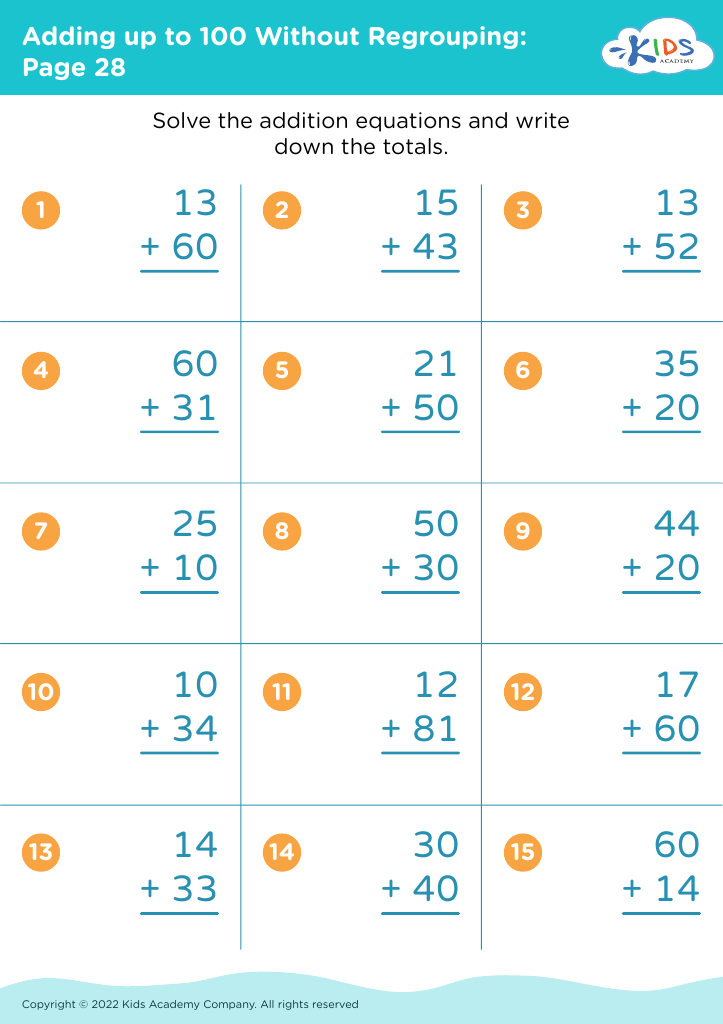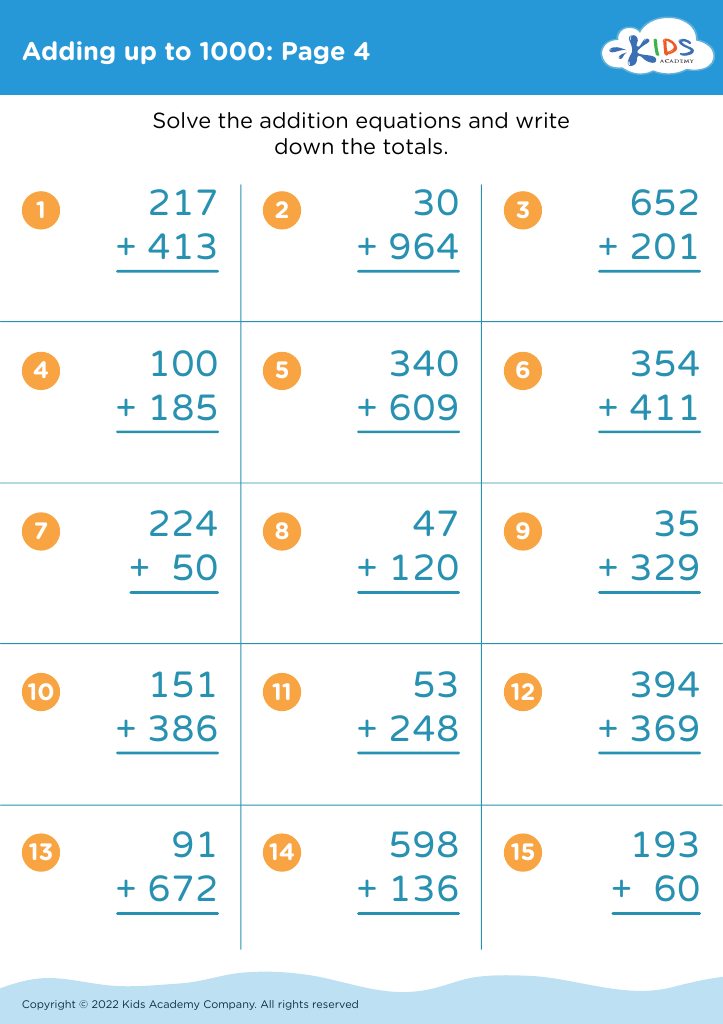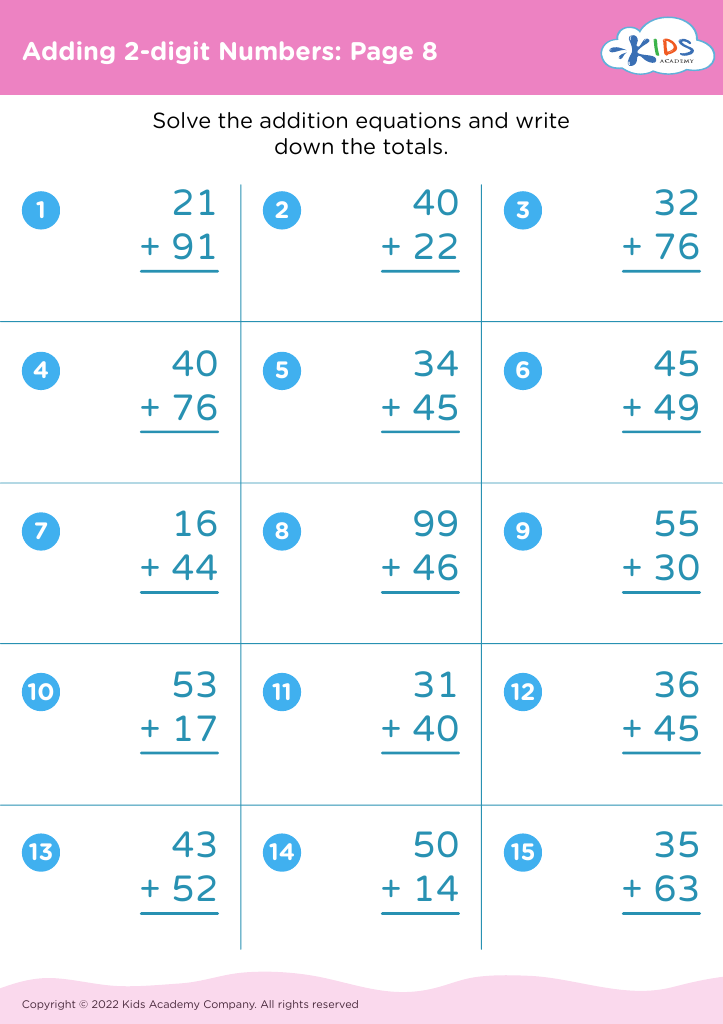Math problem-solving skills Addition Worksheets for Ages 3-8
3 filtered results
-
From - To
Enhance your child's math problem-solving skills with our engaging addition worksheets designed for ages 3-8! Aimed to foster early math understanding, these worksheets provide fun and interactive exercises that help young learners grasp the basics of addition. Children will utilize visual aids, relatable scenarios, and hands-on activities to master addition concepts. Our comprehensive collection includes colorful worksheets that encourage critical thinking and boost confidence in solving math problems. Great for home or classroom use, these resources aim to develop essential math skills while making learning a delightful experience. Let your child explore the world of addition today!
Parents and teachers should prioritize developing math problem-solving skills in young children, particularly in addition, as it lays a foundational understanding essential for future learning. At ages 3-8, children are in a critical developmental stage where early exposure to math concepts significantly influences their cognitive growth and academic success. Mastering addition helps enhance not only numerical skills but also boosts logical reasoning and critical thinking.
Finding solutions to addition problems teaches children how to approach challenges methodically. Engaging in this activity helps improve their concentration, boosts self-confidence, and fosters a sense of accomplishment. Additionally, it equips them with the ability to recognize patterns and relationships between numbers, aiding them in grasping more complex mathematical concepts later on.
Moreover, strong addition skills support their performance in real-life scenarios, such as budgeting or understanding quantities. Children who struggle with math early on may develop anxiety towards the subject, making it crucial for parents and teachers to create a supportive learning environment that encourages problem-solving. Through fun, interactive activities, adults can instill a love for math and empower children to view it as an enjoyable, integral part of their everyday lives. Nurturing these skills now will lead to greater success in their future academic careers.



















